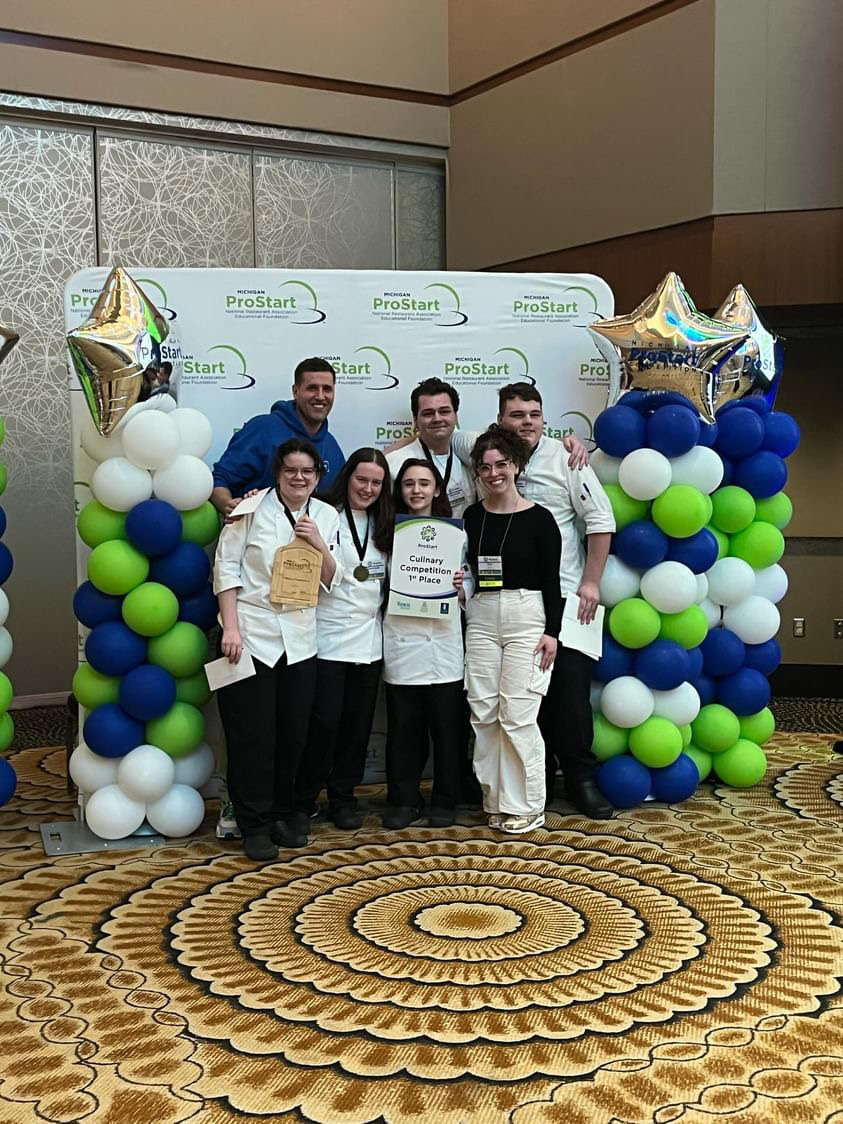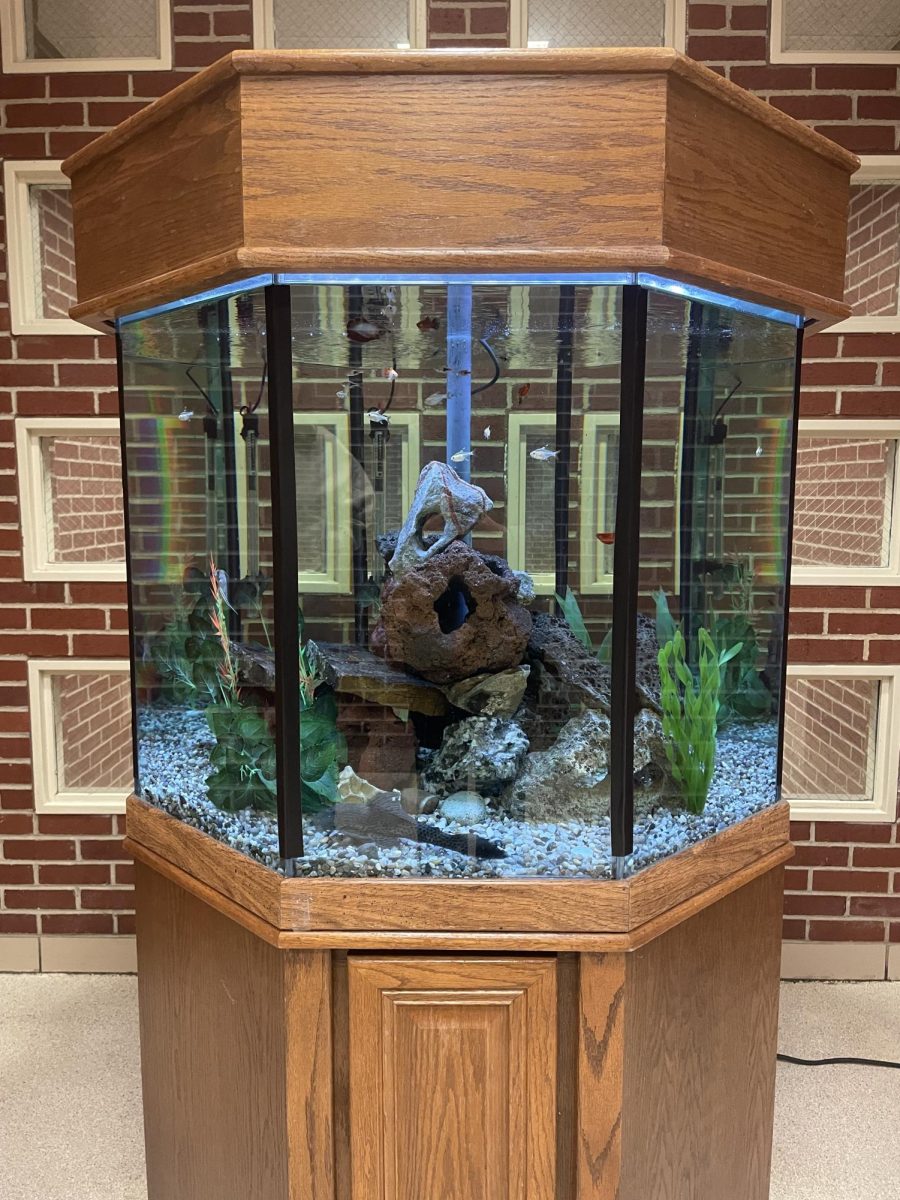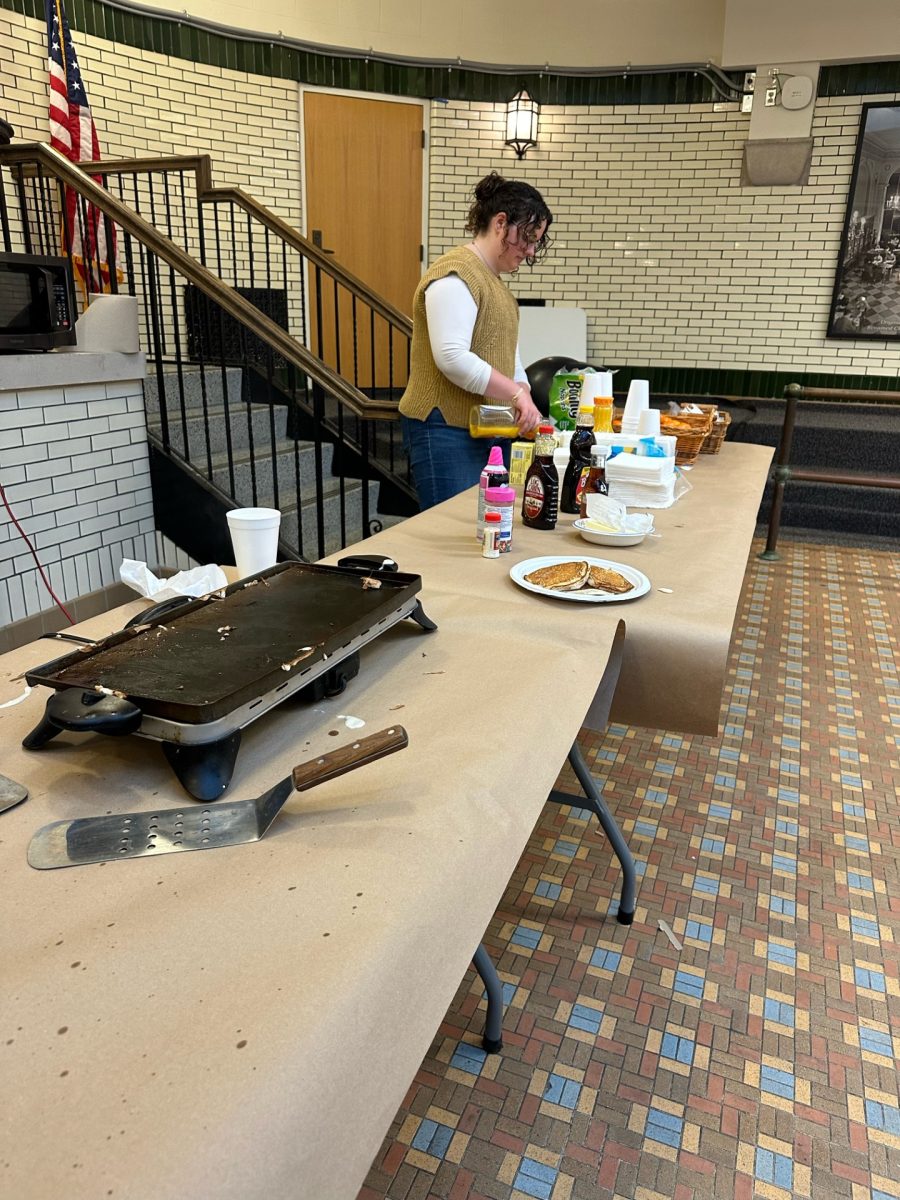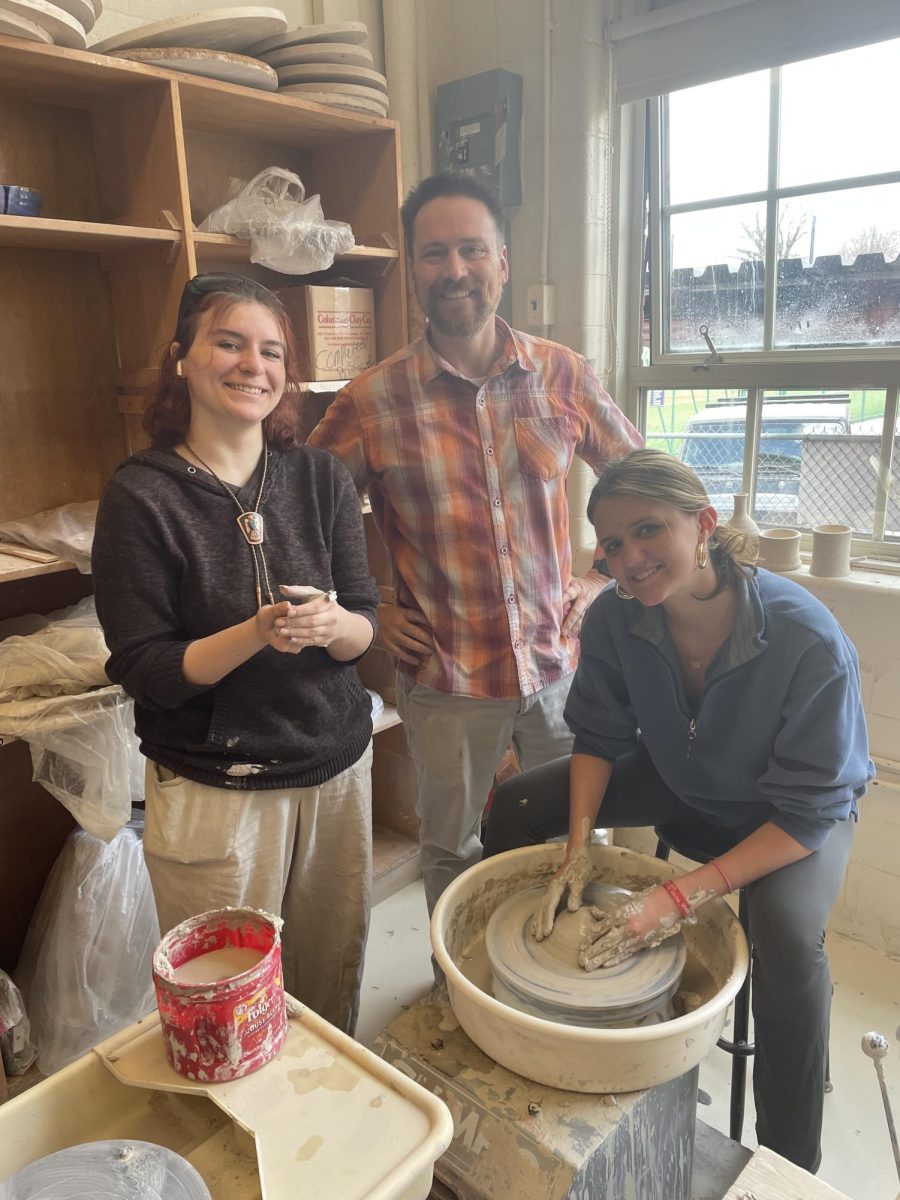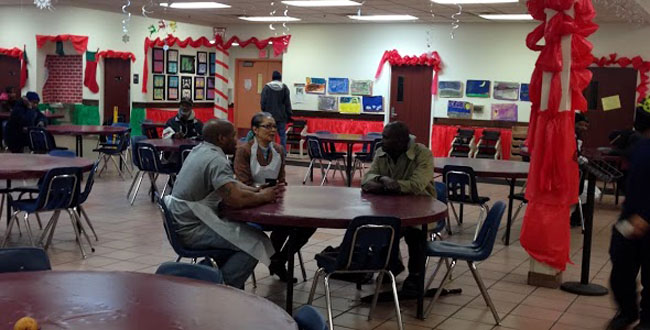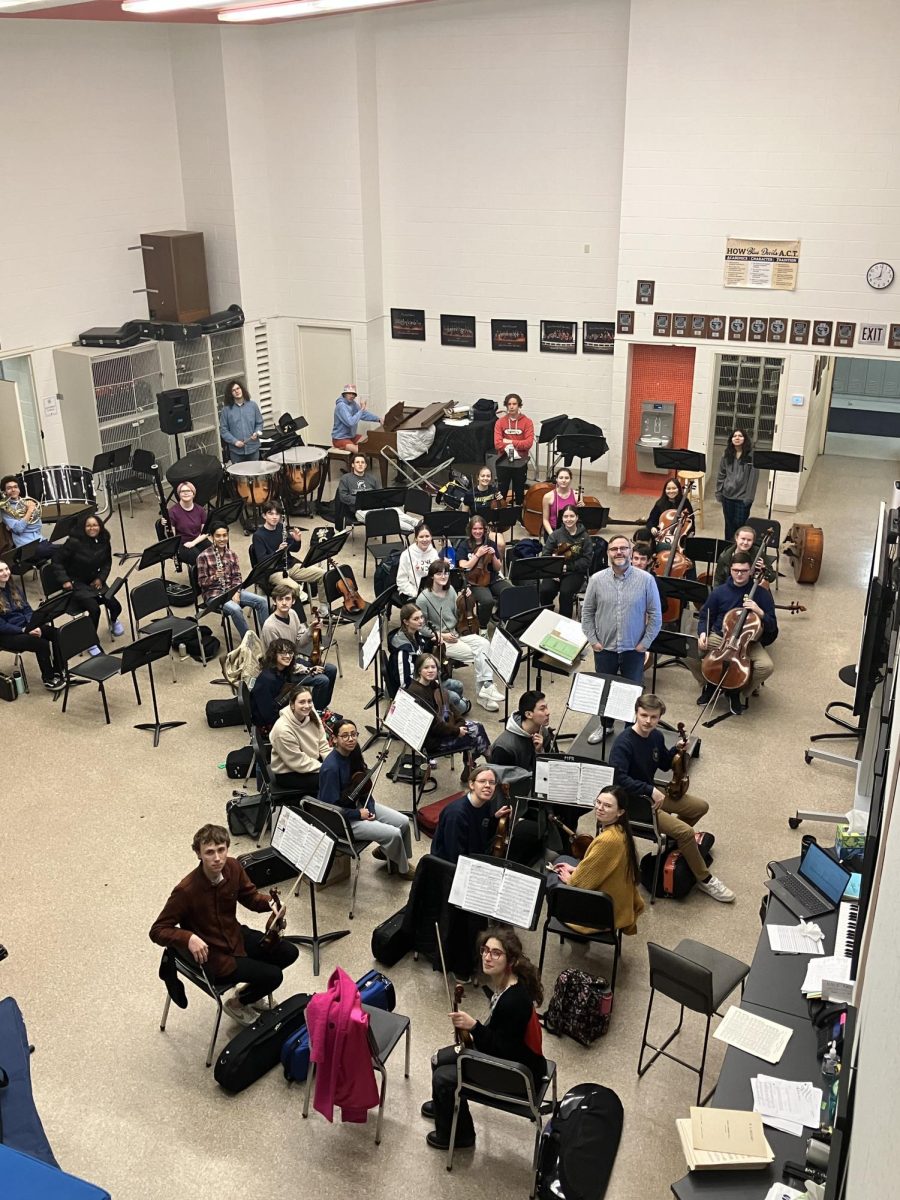Erykah Benson and Emma Russell, both ’17 | Honors Journalism Students
In a high school world where the teenage mind swirls with thoughts of Instagram photos and worries over the next exams, there often leaves little room for thinking about charity. Despite this, students continue to volunteer for good causes and to better the community. But now that the holidays are over, the rush to be charitable quiets down. Shannon Horan ’17 explained that Christmas is the most charitable season. “At that time of year, we all feel the need to give,” said Horan.
However, there is a place where giving occurs 365 days a year, never having closed its doors since 1929, the Capuchin Soup Kitchen. An establishment that has been feeding the needy for 85 years in Detroit.
When one hears the word ‘soup kitchen’, one envisions several things. Horan pictures soup kitchens as plain and old fashioned, and filled with sad, but grateful people. On the other hand, she also believes that soup kitchens provide a safe place. “It would be like a sanctuary. There’s people coming together for a good cause,” said Horan.
Allison Cornell ’14 volunteers at soup kitchens with her youth group. “I do have to say that when I go, I’m always surprised by how normal everyone is,” said Cornell.“ Many people there are between jobs and struggling with feeding themselves and they know that these kitchens will help them out.”
Anthony Kolesky ’17, pictured the kitchens as a place where kind people serve food to people who need it. Students get the opportunity to help out in the community in various ways, a soup kitchen being one of them.
Sullivan, however, believes soup kitchens to have a much warmer atmosphere. “I picture a place where volunteers are able to connect with other people and comfort those who need it. It’s a place where you have the opportunity to make even a small difference in another person’s life.”
Inside, a waft of the warm smell of bread perfumes the room. The kitchen is a large, ceramic tiled room of bakers, cooks, and volunteers busy at work. In the background, the early morning hum of the ovens warm the room with the smell of pastries. Big pots of food steam at the stove, and loaves of bread are stacked neatly on metal shelves.
On a foggy, slushy-streeted Saturday, the soup kitchen is hard at work. Serving up to 100,000 meals a year, the place has not closed for more than two days in a row since it first opened its doors. The Capuchin Soup Kitchens have been there with Detroit through good and bad, according to the video proudly shown to each visitor and volunteer to learn about the establishment’s history.
According to the Forgotten Harvest website, four million households in the state of Michigan are at risk of hunger. Results of this would be reduced quality or quantity of food, ultimately leading to malnutrition. Organizations such as Forgotten Harvest, Gleaners, and the Capuchin Soup Kitchens provide healthy foods to families across the city.
The walls in the hallways are completely covered with pictures of smiling families and volunteers. Drawings by children decorate the doors, their crayon happiness triggering a smile. Inspirational posters and pictures adorn the rooms, their bold, encouraging letters canvas the walls. In the early morning, a man works with an assuring step. He sings soulfully as he carries breads and boxes to the kitchen.
Like how all roads lead to Rome, all the smiling pictures and crayoned drawings lead to the office of Roy Hoelscher.
Growing up in Northern Minnesota, Hoelscher lived by Native American reservations. At an early age, he was concerned over the treatment of Native Americans. “I never could understand why the people who were here first in this country had to be on reservations, while somebody from other countries could take over their land,” said Hoelscher.
Hoelscher was the second oldest of 18 children. He didn’t attend high school until the age of 18. He struggled to find a high school that would take him at his age. Finally, he came across the Capuchins, who ran a high school and a junior college combined. It was there that Hoelscher began to use religion to fuel his purpose in life. “I did want to do something more meaningful. Going to school and meeting other people is real important.”
Serving and meeting hundreds of people a day has made an impact on Hoelscher, he said. He gives his time to those in need year round, while most traditionally do so on the holidays.
“We service a lot of people every day. There really are 364 other days to be thankful. You don’t have to wait until Thanksgiving. Taking time to be thankful is important,” said Hoelscher.
“I’ve been here 46 years this year, and being thankful every day of the year is a lot more enjoyable than waiting until November 24,” said Hoelscher.
There was a look in Hoelscher’s eyes when he talked. He talked with his hands, as if he could take time slowly, no rush, no fuss, and yet he ran a busy establishment that fed hundreds of people a day. He had this quiet demeanor about him that was peaceful and understanding, as if he saw something glowing in people that others failed to notice.
To Hoelcher, there’s more to soup kitchens than just feeding people. Pointing to a poster of Albert Einstein in his office, he recites the very words he lives by. “’Everybody is a genius. But if you judge a fish by its ability to climb a tree, it will live its whole life believing that it is stupid.’ It’s all about really helping understand what they’re about. Basically by listening to them, and understanding that it’s God’s world. We’ve got an important part to play in it, but the world ain’t gonna end because we didn’t have a lot things in our pocket.”
Not only do soup kitchens provide food, but according to its website, the Capuchin Soup Kitchen offers educational and creative programs for children, as well as programs to help people overcome drug and alcohol abuse. Soup kitchens provide year round services, helping the community whether or not the Salvation Army is out ringing their holiday bells. According to Hoelscher, helping people in need is about bringing them to understand that they have a purpose in life. To fulfill both their hunger and their well being.
“If we define feeding in a broader way, we’re really feeding people’s souls. Jesus had fed the 5000 people. Well, it didn’t specifically say that he ‘fed them’. It said that ‘The people ate and were satisfied.’ If you share things it feels a lot better than being greedy,” said Hoelscher.
The Capuchin Soup Kitchen has bettered the community for generations. Students carry on a torch of charity that helps out those in need. When it comes to giving back and helping the community, students have a variety of ways to get into action. Sullivan volunteers at soup kitchens and other organizations such as pregnancy aids and with churches. Alexa Calas ‘14 volunteers at Beaumont Hospital, to both experience what a hospital environment is like, as well as helping people.
“It made me see how grateful some people were for the help and so I felt like I was giving to the community,” said
Calas. “ I do volunteer with the National Honor Society (NHS). I get the credit hours, of course, but I also love helping people out,” said Sullivan. “Maybe it’s a selfish thing, but I feel good when I know that I’m helping someone in need.”
Though the National Honor Society is an opportunity for helping the community, other students, like Victoria Rinaldi ‘16, choose to do so out of pure enjoyment. “The program that I’m in helps inner city children or paint murals around the city and I just think it’s a good mix of beautifying the city and helping kids,” said Rinaldi. “ I would volunteer over the summer and I’m not in NHS and I plan on doing it over the summer this year. I enjoy helping out the community,” said Rinaldi.
Charity has come to have many definitions. It means more than fulfilling NHS community service requirements. It goes beyond putting a few extra coins into the donation box. According to Rinaldi it’s all for pure satisfaction. According to Hoelscher it’s all about the souls you’re feeding.
The kitchen and eating area were immersed in tinsel and foil, red and green, decorated with snowflakes, santas, and sleighbells. Volunteer worker Larry Davis admires the Christmas scenery that welcomes in guests with yuletide warmth. Davis explained that he feels safe at the soup kitchen. “I love to help people out,” said Davis. “I don’t want to see people out in the cold.” Paper snowflakes swingpeacefully from the ceiling, and early in the morning a volunteer sings good morning to smiling faces.
A mother sits at a round wooden table at the Conner Street soup kitchen. Her name remains
anonymous. Her five young children quietly run and play at the table or eat their late breakfast. Forgotten Harvest reports that 1 in 2 children in Detroit are at risk of hunger. A little boy in a Spiderman hat holds on to his mother tightly. She looks up with eyes that flood dark brown with gratitude. She spoke up with a softened tone, “It’s a blessing to me and my children.”
At the Capuchin Kitchen on Conner Street, the tables are never empty, the air never song less or story less, and the oven never not humming with the warm smell of bread. Serving up soup for the stomach. A soup of understanding, respect, and encouragement. A potluck of volunteers, donors, directors, and guests. Like many organizations, families, and students around the city, they deliver ahuman generosity that brings a community together. Through mind, body, and soul. That is the root of charity.




